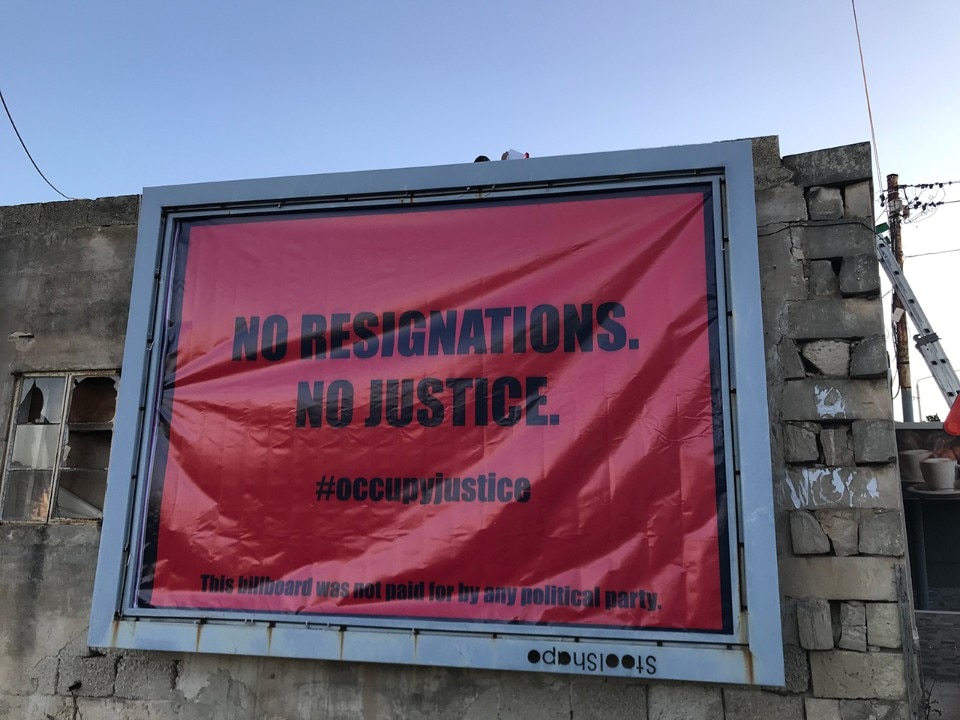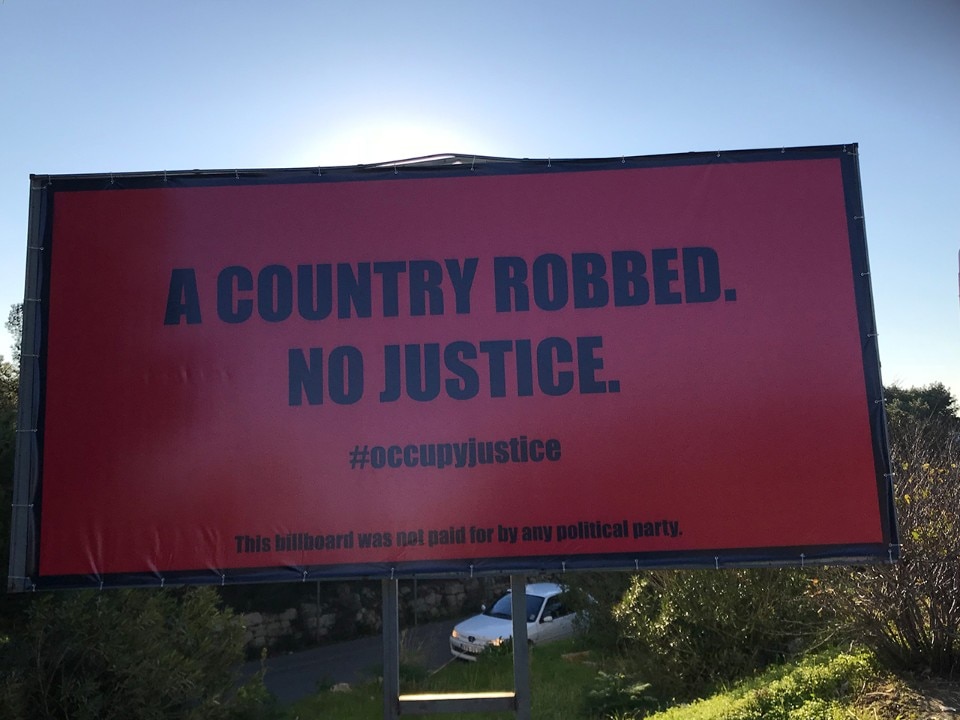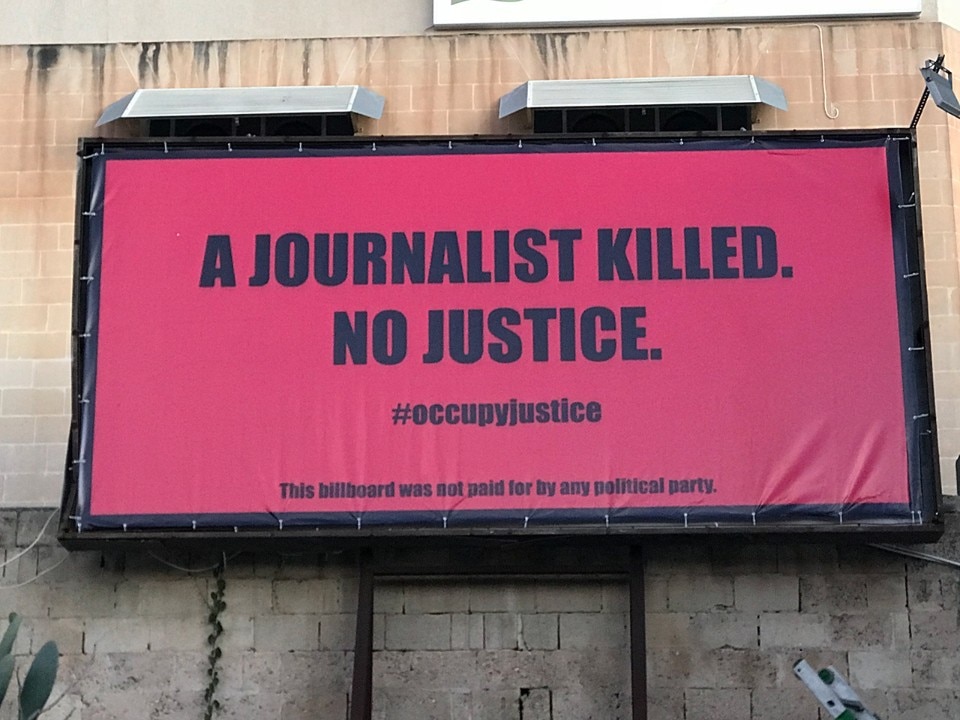Does life imitate art? It has in Malta. As in the film Three Billboards Outside Ebbing, Missouri, a group of activists put up three posters in a typeface like the one used in the Oscar-nominated film. The anonymous group wants justice for the reporter Dafne Caruana Galizia, who was killed on 16 October 2017 after a bomb was planted in her car.
The posters were taken down on 17 February 2018 by the Maltese government, which said they were “illegal”. #occupyjustice has accused it of censorship, saying that they had paid for the posters to be displayed. In a democracy, such posters could not be removed so long as they were not offensive about minorities, false or discriminatory – and this was not the case here. There were three slogans on the posters: “A journalist killed. No justice”; “A country robbed. No justice”; and “No resignations. No justice.”
The reporter was killed after discovering illegal activity in government and was the first to break the news of the involvement of the government politicians Konrad Mizzi and Keith Schembri in the Panama Papers.

What has happened? From a political point of view, the #occupyjustice posters, which borrow from #occupywallstreet, the grassroots movement critical of the capitalism of the banks, are powerfully subversive. The goal is to occupy justice, which in a democracy is under the control of the competent bodies, not the people (the alternative would be alarming). From another point of view, this is a case where the culture of the image has become political – both in emulating the film, and in the simple display of allusive slogans in black type on red. This is much more effective than the twentieth-century culture of spraying slogans on city walls. The graffiti artists were often self-declared subversives and not always acting in the public good (as in the New York of the 70s). The aesthetic of the Maltese posters is backed by an organisation, an anonymous collective expressed in its hashtag (not the graffiti artist’s repeated tag), it finds an effective new use for the billboard, and it is completely legal. This is one of those cases where – a little like the Tunisian murals after the Arab Spring – art is not just hung on walls, but represents politics, reportage and history. It conveys a message (of freedom). In short: it is useful.


